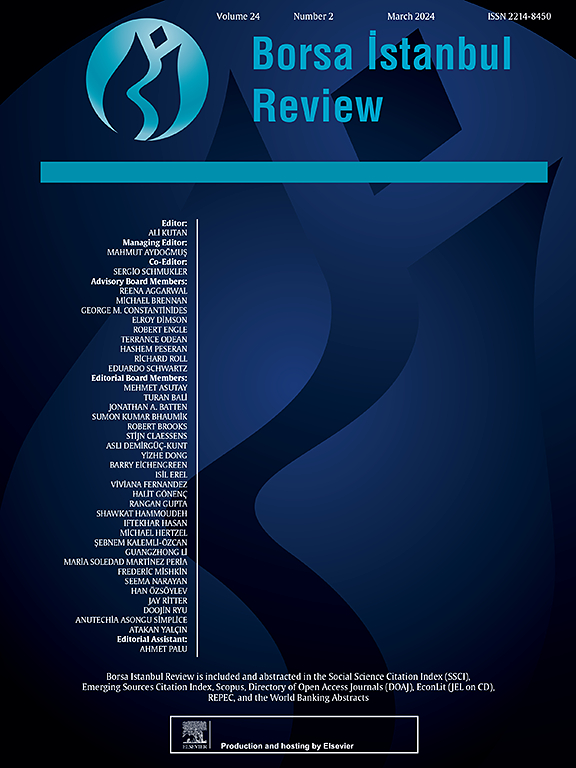The determinants of financial risk tolerance and portfolio allocation: Have the Covid-19 pandemic and the Ukraine war affected our risk tolerance?
IF 7.1
2区 经济学
Q1 BUSINESS, FINANCE
引用次数: 0
Abstract
This study focuses on examining the factors affecting financial risk tolerance and portfolio allocation among working-age highly educated adults in Bosnia and Herzegovina. It also explores how the Covid-19 pandemic and the Russian invasion of Ukraine have affected these financial decisions. We employed multinomial logistic regression, incorporating subjective and objective risk tolerance measures, and considered various socio-demographic and psychological risk-taking factors. The findings reveal that risk attitudes, along with investment knowledge and experience are the primary determinants of financial risk tolerance, while socio-demographic variables have minimal effect. Moreover, the recent financial turmoil resulting from the Covid-19 pandemic and the Russian invasion of Ukraine substantially influenced individual's subjective risk tolerance, with no impact on the objective risk tolerance, which is our main contribution to the existing literature. This study contributes to understanding of financial risk tolerance in emerging markets, shedding light on the key determinants and impact of significant global events.
金融风险承受能力和投资组合分配的决定因素:Covid-19 大流行病和乌克兰战争是否影响了我们的风险承受能力?
本研究主要探讨影响波斯尼亚和黑塞哥维那受过高等教育的工作年龄成年人的金融风险承受能力和投资组合分配的因素。研究还探讨了 Covid-19 大流行和俄罗斯入侵乌克兰对这些金融决策的影响。我们采用了多项式逻辑回归法,纳入了主观和客观风险容忍度衡量标准,并考虑了各种社会人口和心理风险承担因素。研究结果表明,风险态度、投资知识和经验是金融风险承受能力的主要决定因素,而社会人口变量的影响微乎其微。此外,最近因科维德-19 大流行病和俄罗斯入侵乌克兰而引发的金融动荡对个人的主观风险承受能力产生了重大影响,而对客观风险承受能力没有影响,这是我们对现有文献的主要贡献。本研究有助于理解新兴市场的金融风险容忍度,揭示全球重大事件的主要决定因素和影响。
本文章由计算机程序翻译,如有差异,请以英文原文为准。
求助全文
约1分钟内获得全文
求助全文
来源期刊

Borsa Istanbul Review
Multiple-
CiteScore
7.60
自引率
3.80%
发文量
130
审稿时长
26 days
期刊介绍:
Peer Review under the responsibility of Borsa İstanbul Anonim Sirketi. Borsa İstanbul Review provides a scholarly platform for empirical financial studies including but not limited to financial markets and institutions, financial economics, investor behavior, financial centers and market structures, corporate finance, recent economic and financial trends. Micro and macro data applications and comparative studies are welcome. Country coverage includes advanced, emerging and developing economies. In particular, we would like to publish empirical papers with significant policy implications and encourage submissions in the following areas: Research Topics: • Investments and Portfolio Management • Behavioral Finance • Financial Markets and Institutions • Market Microstructure • Islamic Finance • Financial Risk Management • Valuation • Capital Markets Governance • Financial Regulations
 求助内容:
求助内容: 应助结果提醒方式:
应助结果提醒方式:


